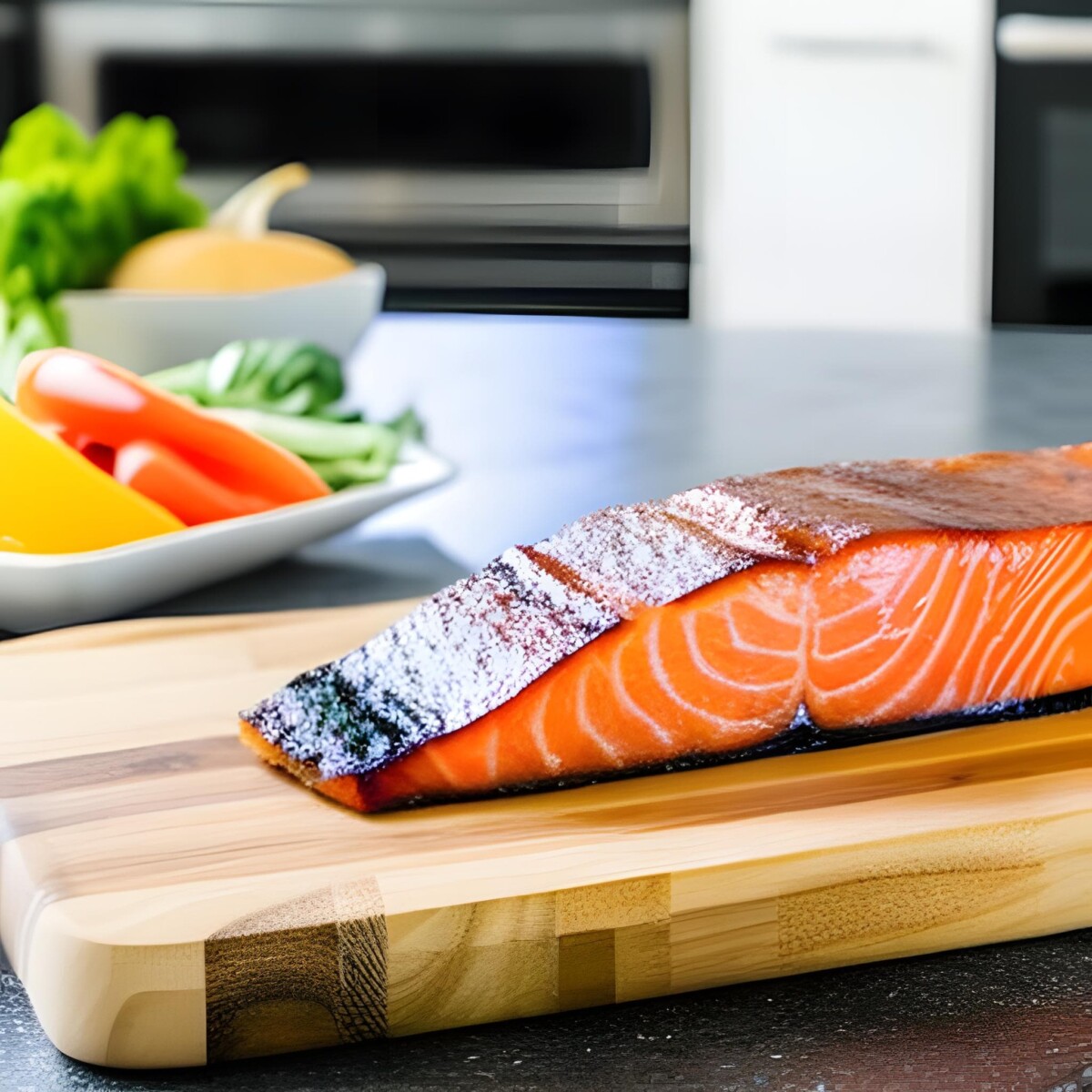When it comes to our furry friends’ diet, their health and safety is a top priority.
One question that often arises among dog owners is, “Can dogs eat salmon?”
The popularity of raw meat in dog diets should be taken with a grain of salt. The source of raw meat is equally important as the cut itself. Please consult your veterinarian before you introduce raw meats including salmon.
This article dives into the topic, providing insights into whether salmon is a suitable addition to your dog’s diet, potential benefits, risks, and guidelines to keep in mind.
Can Dogs Eat Salmon: Table of Contents
Can Dogs Eat Salmon
Yes. Cooked and unseasoned salmon is a nutrient-rich fish. It is renowned for its omega-3 fatty acids and protein content. I would not recommend raw salmon due to potential health complications.
The Nutritional Value of Salmon for Dogs
Protein-Packed Goodness
Salmon is an excellent source of high-quality protein, which is crucial for muscle development and overall health in dogs. Incorporating moderate amounts of cooked, boneless, and skinless salmon into their diet can contribute to a well-rounded nutrition plan.
Omega-3 Fatty Acids: Boon or Bane?
Omega-3 fatty acids are known for their anti-inflammatory properties and potential benefits for skin and coat health. However, while dogs can benefit from omega-3s, an excessive intake might lead to imbalances in their diet. Consulting a veterinarian before introducing salmon into your dog’s diet is advisable.
Potential Risks and Precautions
Bones and Cooking Methods
Bones in salmon can pose a choking hazard and potentially injure a dog’s digestive tract. Thoroughly debone the fish before feeding it to your dog. Additionally, ensure that the salmon is cooked thoroughly to eliminate any risk of parasites.
Watch for Allergic Reactions
Just like humans, dogs can develop allergies to certain foods, including salmon. Introduce small portions initially and monitor for any signs of adverse reactions, such as itching, vomiting, or diarrhea. If such symptoms occur, consult a veterinarian promptly.
Portion Control and Frequency
Moderation is Key
While salmon can offer health benefits, it’s essential to provide it in moderation. Too much of any new food can upset a dog’s stomach. Incorporate small portions as an occasional treat rather than a regular meal.
Guidelines for Feeding Salmon to Dogs
Cooked and Unseasoned
Always serve salmon that is thoroughly cooked and free from any seasonings, additives, or spices. Avoid ingredients like garlic and onions, which can be toxic to dogs.
Steer Clear of Raw Salmon
Raw salmon might contain parasites or bacteria that can harm dogs. Cooking the fish helps eliminate these risks.
Vet Q+A
Can dogs eat any type of salmon?
It’s best to offer only cooked, boneless, and skinless salmon to dogs. Avoid smoked or seasoned salmon.
How much salmon can I feed my dog?
Include salmon as an occasional treat, and consult your vet for precise guidelines based on your dog’s size and needs.
Is there a risk of salmon poisoning?
Yes, dogs can be susceptible to salmon poisoning disease if they consume raw salmon from certain Pacific regions. Cooking the fish eliminates this risk.
Are there alternatives to salmon for omega-3 fatty acids?
Yes, you can explore alternatives like fish oil supplements that are specifically formulated for dogs.
Can puppies eat salmon?
Puppies have delicate digestive systems. Consult your vet before introducing salmon into their diet.
My Senior Paws is a participant in the Amazon Services LLC Associates Program, an affiliate advertising program designed to provide a means for sites to earn advertising fees by advertising and linking to Amazon.com. We also participate in other affiliate programs which compensate us for referring traffic.




